9 Read-Worthy Books from 2022
I brought you a topic I love: good books. They are not books from 2022, but books I read this year and found interesting.

I watch book recommendation videos to get ideas about what to read next. I found several on this list through other content creators' recommendations.
I bring some ideas from the books as well to give you a sneak peek of what you can expect.
I hope you find one or two recommendations that you will enjoy reading.
Let’s get started.
Paul Millerd: The Pathless Path
The first book is an unconventional one: Paul Millerd’s Pathless Path.
I had the hunch that the only thing he does is revisit Tim Ferris’s 4-hour work week a few years later and point out possibilities on how others are hacking a living in the modern world. But he does so much more (maybe too much).
The Pathless Path is at the intersection of self-help and business/money books. It also outlines the recent trends and the future of working.
Default path: We are drawn to things we don’t enjoy, which is not our path. It’s the easy path.
Questions the book made me ask
- Is this a decision I make to avoid feeling stuck? (job hunt)
- When should you be conscious about your dreams and avoid the default path? After finishing high school: going to university or not, finding a place to live, picking a profession...
- Are you on the default path now?
- “If work dominated your every moment, would life be worth living?” - Andrew Taggart
- What are my fixed points in life? Are they impacted by my upbringing? Should I change that?
- What should I add as a fixed point to my life?
- What is holding me back as a fixed point?
Frank Herbert: Dune
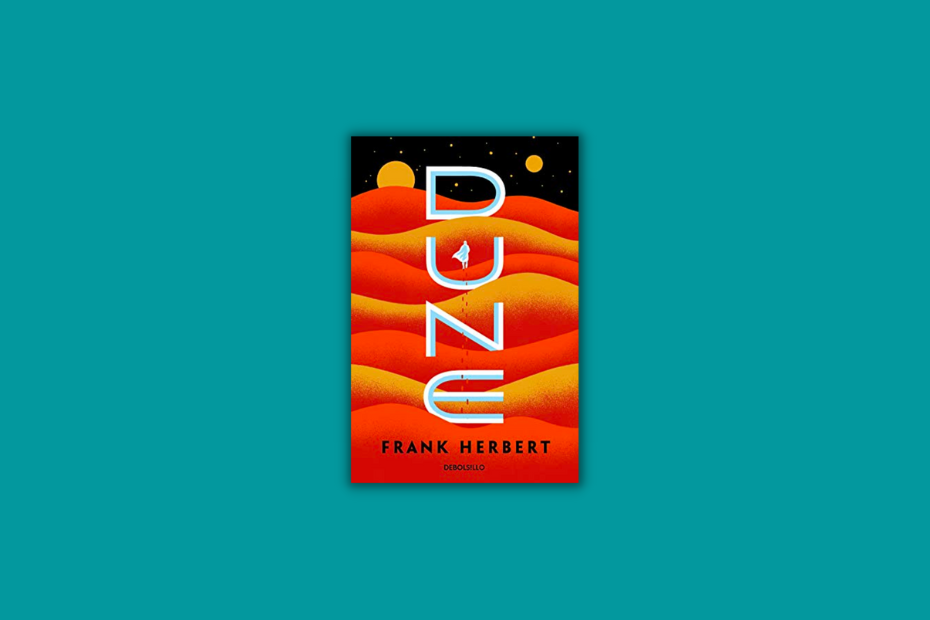
I use movies and series to discover great books. This is how I read all Harry Potter books, started reading Game of Thrones, and The Witcher, and had a similar sensation but with a twist for the Dune.
If you haven’t watched the movie or the trailer yet then in short the Atreides family got a mission to take over the desert planet Arrakis, which is the only source of the universe’s most valuable resource: splice. This move from the Emperor looks like a trap and turned out to be one. People got slain, survivors go to the desert and the rest is in the book.
When you see the movie first and then start reading your mind works with already constructed characters. I wanted to avoid this and limit this effect only to trailers I watched. And it's so much better to read the book first.
You have an extra context to watch the movie with.
Reading the book first can be also a curse. You are missing details, and scenes from the book. But if the movie is well-thought then you will leave with a great experience.
Reading and watching Dune were both great experiences.
It’s an inter-galactical House of Cars.
A Game of Thrones, but dragons are replaced with huge worms.
It’s The Billions, but they don’t trade stocks, but splice.
Dune was the longest read for me for the year with its 600+ pages, but I still felt it was short.
Haruki Murakami: Norwegian Wood
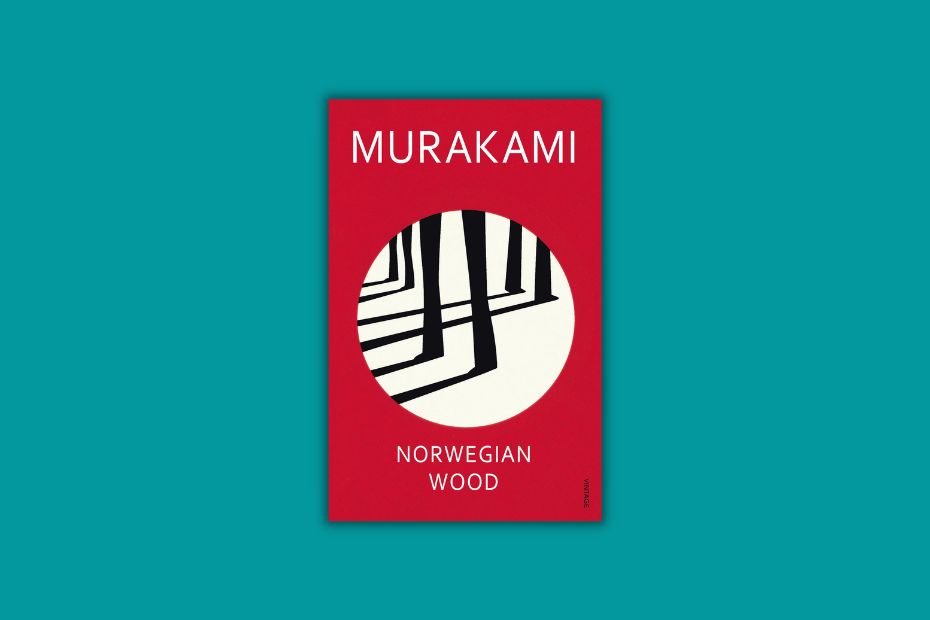
When I discovered Haruki Murakami every year I read a book from him. First I read Killing Commendatore, then Kafka on the Shore, and I liked the unexpected supernatural twists of the story.
I believed putting some magic into the story is the main reason why I love Murakami’s writing. After reading Norwegian Wood I know that it wasn’t the case. There isn’t magic in Norwegian Wood.
It’s dark. It’s about grief. About the loss of a loved one.
Also, it’s about discovery and it’s about life.
It’s an emotionally hard read, but I liked the Norwegian Wood.
Haruki Murakami: What I Talk About When I Talk About Running
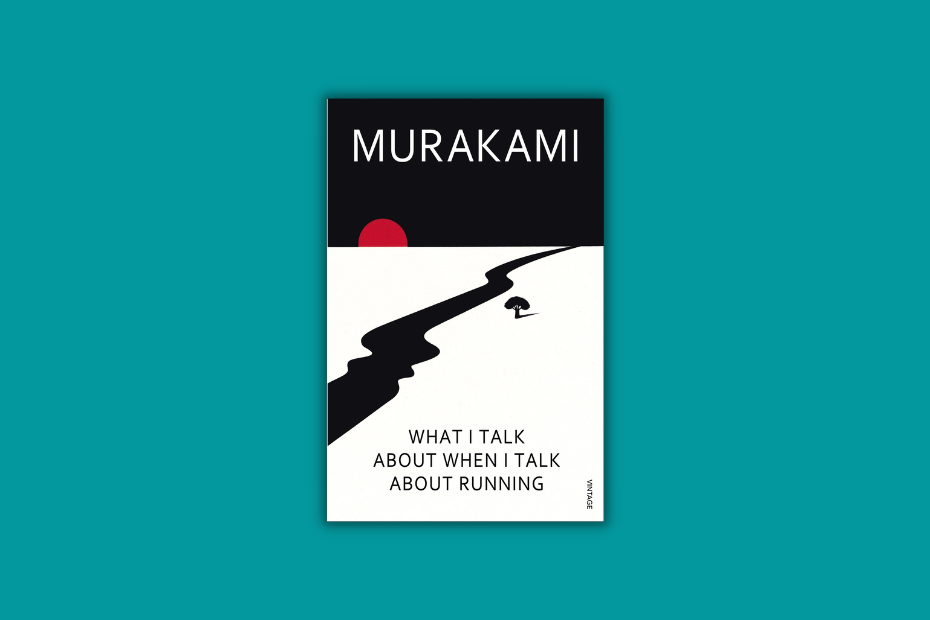
Besides having mesmerizing novels I love to read, Murakami wrote novels reliably over the years. He writes like running a marathon and always finishes with a good time.
Murakami uses running as a metaphor to talk about life.
When your personality requires total commitment: "I’m the kind of person who has to totally commit to whatever I do. I just couldn’t do something clever like writing a novel while someone else ran the business.”
Effort matters even if the goal looks stupid
After a triathlon race, Murakami was pondering on the seemingly pointless nature of his sport. Everyone goes back home to train for the next race. Run an insane amount, swim and cycle to do the same during the next competition. He uses the metaphor of pouring water into an old pan with holes. Even if water is flowing out, the effort you put into the job remains.
To deal with unhealthy be healthy
As he writes ”unhealthy soul requires a healthy body”.
After switching from running a bar to writing a novel Murakami started to gain weight. Managing a bar required hard physical labor, while sitting ten hours straight didn’t really burn the same amount of calories.
His energy level also decreased which doesn’t help in a profession where focus and endurance are key.
He started to run as a way to compensate for the unhealthy part of his writing lifestyle.
Two days rule
The most likely cause of failing to run a good time in a marathon: not enough training.
Never skip running two days in a row.
Ryan Holiday: Courage Is Calling
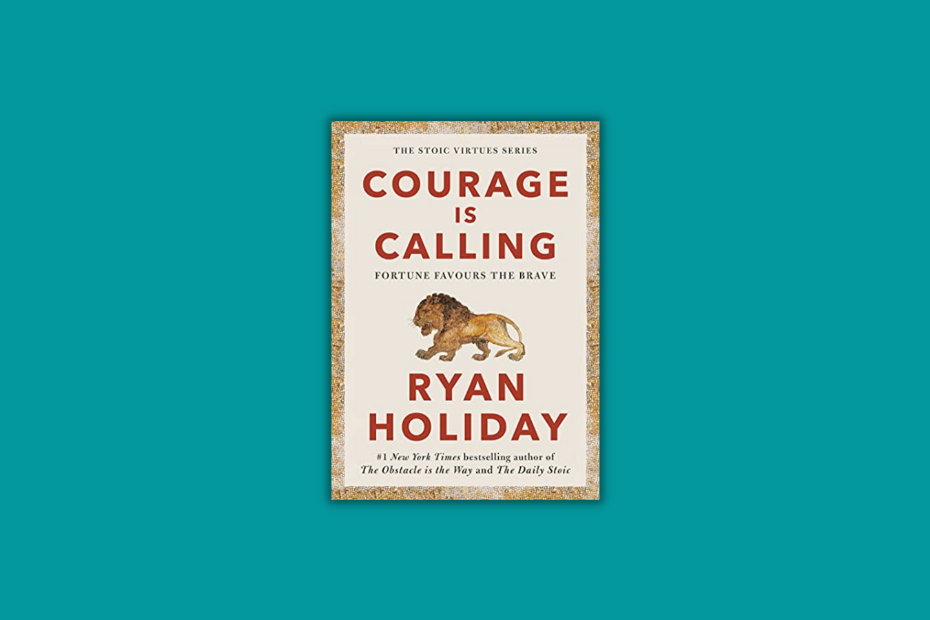
After finishing his stoic trilogy (Ego is the Enemy, Obstacle is the Way, Stillness is Key) Ryan Holiday embarked on a new journey covering the classic virtues: courage, discipline, and wisdom.
Compared to his previous books I wasn’t that interested to read the long stories he researched. Even I am getting bored of Ryan’s writing or the stories in Courage is Calling were not that good.
Fear keeps us from destiny
Fear motivates us to play it small. Play it safe. But anything worth pursuing should be somewhat terrifying. If not, then we will stick to the status quo and won’t change anything on earth.
The Hero's Journey is a popular pattern in great stories. It starts with the “call to adventure” and since the call is terrifying it follows usually by the “refusal of the call” before our hero embarks on the journey and faces trials.
In the Lord of the Rings or Star Wars, the refusal of the call holds for a few minutes.
But in real life, we can spend years sticking to refusing our call:
Florence Nightingale who revolutionized modern nursing knew that there are great problems with the organized care for wounded soldiers.
She wanted to help, but family and fear kept her from embarking on the journey.
She spent 16 years after the “call to adventure” refusing the call. She saw that if she doesn’t do something nothing will change, then she embarked on the journey.
Fear holds back even the greatest.
But if it is your call, then you can’t escape it.
Agency Is Taken, Not Given
Why did Florence Nightingale embark on a journey to help the wounded?
Even after 16 years of waiting?
Because she realized that no one is coming to help her. No one was coming to solve the problems she saw in the world.
She realized she has to act or nothing will change.
The dangers of playing small
The cost of playing small is the opportunity of what you leave on the table.
The what could have been.
If your life never requires courage then your life is boring. Fear is a sign. If you don't fear, you don't push yourself.
But what if you are paralyzed by fear and can’t make a choice? Not acting is an action by itself. It is a vote for the status quo.
Ernest Hemingway: For Whom the Bell Tolls
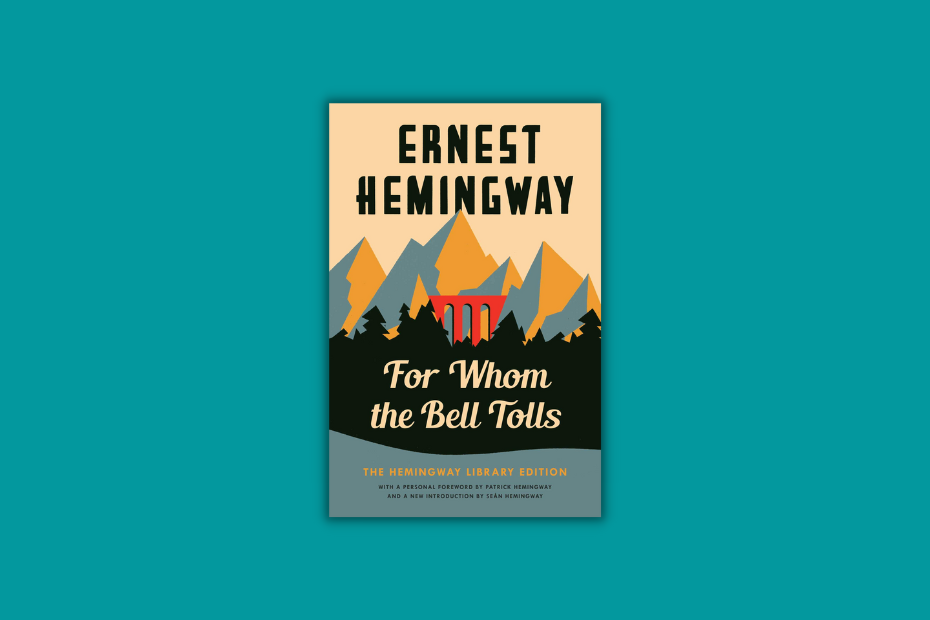
Robert Jordan, an American fighting on the side of the Republic in the Spanish Civil War are sent to the mountains to blow a bridge. He relies on guerilla forces to help him but the attack looks like a suicide mission.
Robert Jordan gets to know Maria, a girl who suffered from the fascists and escaped thanks to Pablo and his band. This love is condensed to a 3-day period.
The book is incredibly slow. Nothing happens in the first 300 pages. Hemingway sets the context and tells the background of the people and the atrocities they suffered in the Civil War.
This book is about hope for me.
Hope in situations when you know you are handicapped. When nothing is sure. Even though the end is tragic, we got some small hope in the darkest hours of the book.
It's also a good lens to examine ordinary people under the pressure of war. Even if they are good people they may do extraordinarily bad things like Pablok, the ex-leader of the guerrilla group.
Andrzej Sapkowski: The Witcher - Sword of Destiny
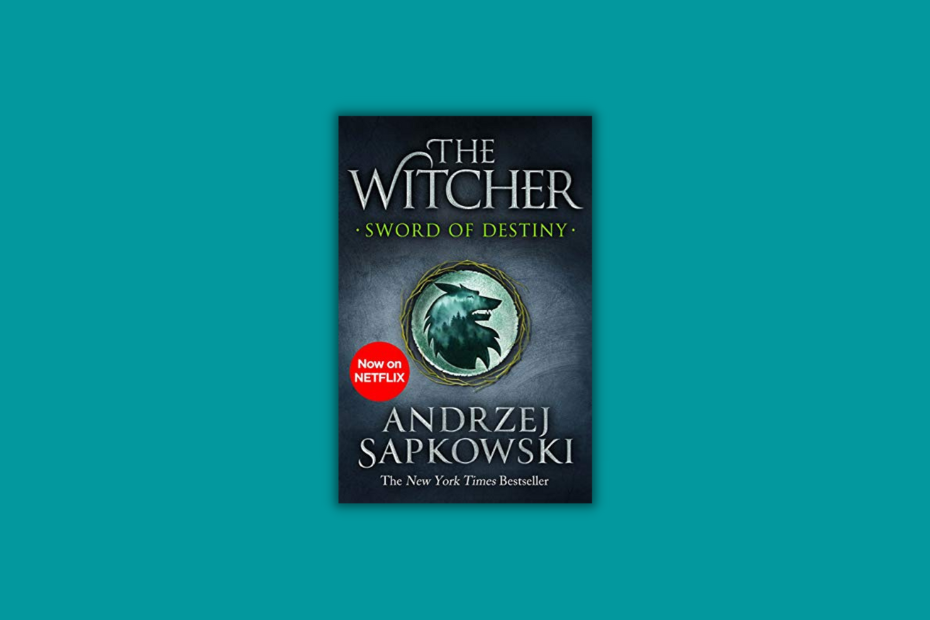
After becoming a big fan of the Netflix show I impulse-buyed the first Witcher book. I didn’t play the games, my only exposure to Andrzej Sapkowski’s world was the series. I saw that there must be more to it. I didn’t understand some of the references, and metaphors.
In the end, I watched some Youtube videos and everybody was talking about the book. So I started reading.
I have the feeling that reading a book is always better than watching a series or movie. It is sure to enrich the experience in the case of The Witcher. Though it’s astonishing how well the show makers adapted a high portion of the book to make the first season.
I finished the few hundred pages in 4 days. If you start you can not stop reading this book.
Chip Heath: Made to Stick
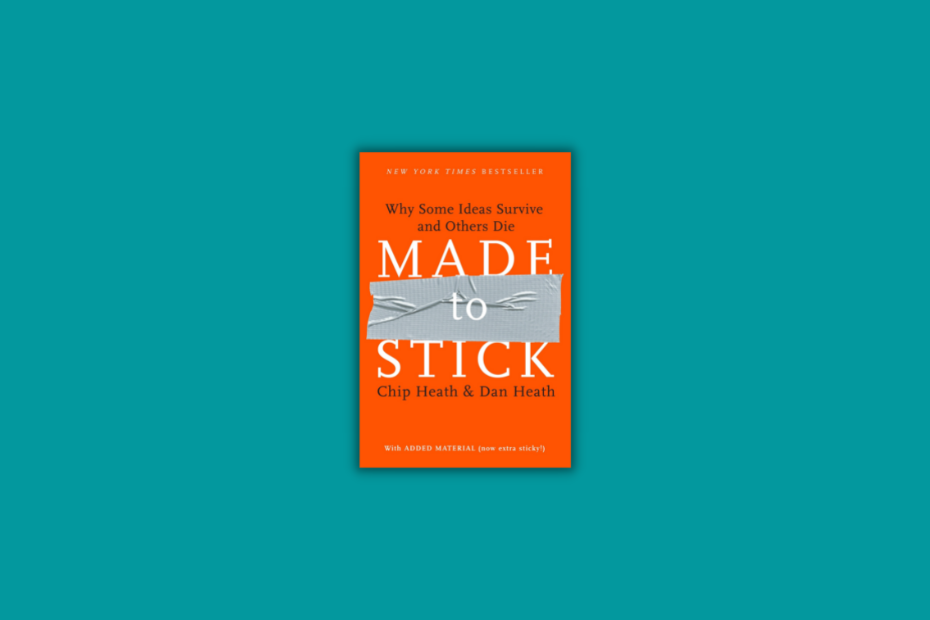
Made to Stick is a book about transforming ideas into simple stories that inspire people to act. The authors analyzed the most famous urban legends, the best advertisements, and a fair amount of research to come up with the SUCCES framework of good stories.
- Simple: The best stories can be summarized in one sentence. Start with the moment when you caught sight of the bear.
- Unexpected: Humans adapt to familiar conditions quickly. They get bored by similar stories. Breaking a pattern, and adding something unexpected to your story helps to grab attention.
- Concrete: When Kennedy declared that the USA would put a man on the moon until the end of the decade he gave a concrete vision that could drive the whole nation.
- Credible: The storyteller's knowledge of details is often a good sign of credibility. A history nerd reciting dates of battles probably knows his stuff.
- Emotional: Visualising yourself doing something makes you more likely to engage in action. Stories are mental visualizations: A good story is a visualization of the past with all of its advantages.
- Story: Spotting stories is easier than creating stories: The world will always produce better stories than us, so spotting stories are superior to creating stories
Eric Abrahamson: A Perfect Mess
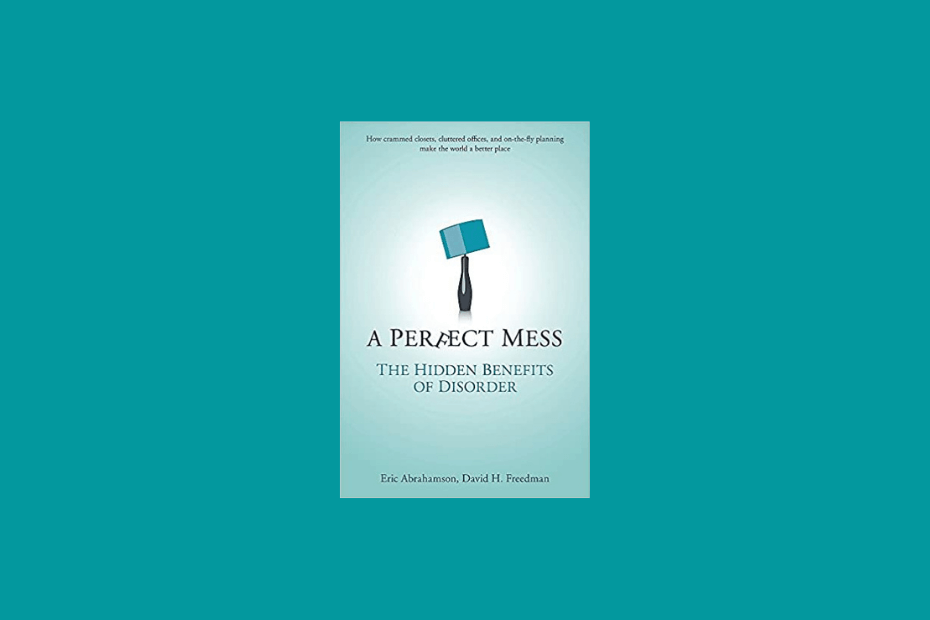
Organize your notes, declutter your home, and make order in your garage. They are accepted as productive activities, but are they always? It turns out that sometimes it is worth being a little messy.
Maybe I follow too many productivity and personal knowledge management folks on Twitter, but I see more and more cases where people put the smallest nuances of their life into Notion, call it a Life Operation System, and believe it's better than living without a plan.
Overthinking in Notion rather looks like a waste of time and the road to a less fun life.
So I picked up a book which is about the opposite road.
About the benefits of being messy.
Procrastinating can be productive. It keeps you away from working on the wrong goals. Also leveraging new solutions later can be more beneficial than paving the way for innovations.
Being focused is overrated. You can’t know that something you labeled unproductive may contribute to your life. Random discovery known as serendipity can be valuable to you only if you let seemingly unrelated things take a part in your life.
In a messy system like the world economy, there are no institutions that can make ordered forecasts.
Too much order can hurt you. While a messy home rarely impacts your health drastically, chemicals used for cleaning or too clean surfaces can make you sick.
Improvisation and unexpected moves are an integral part of novels, paintings, and music as well.



